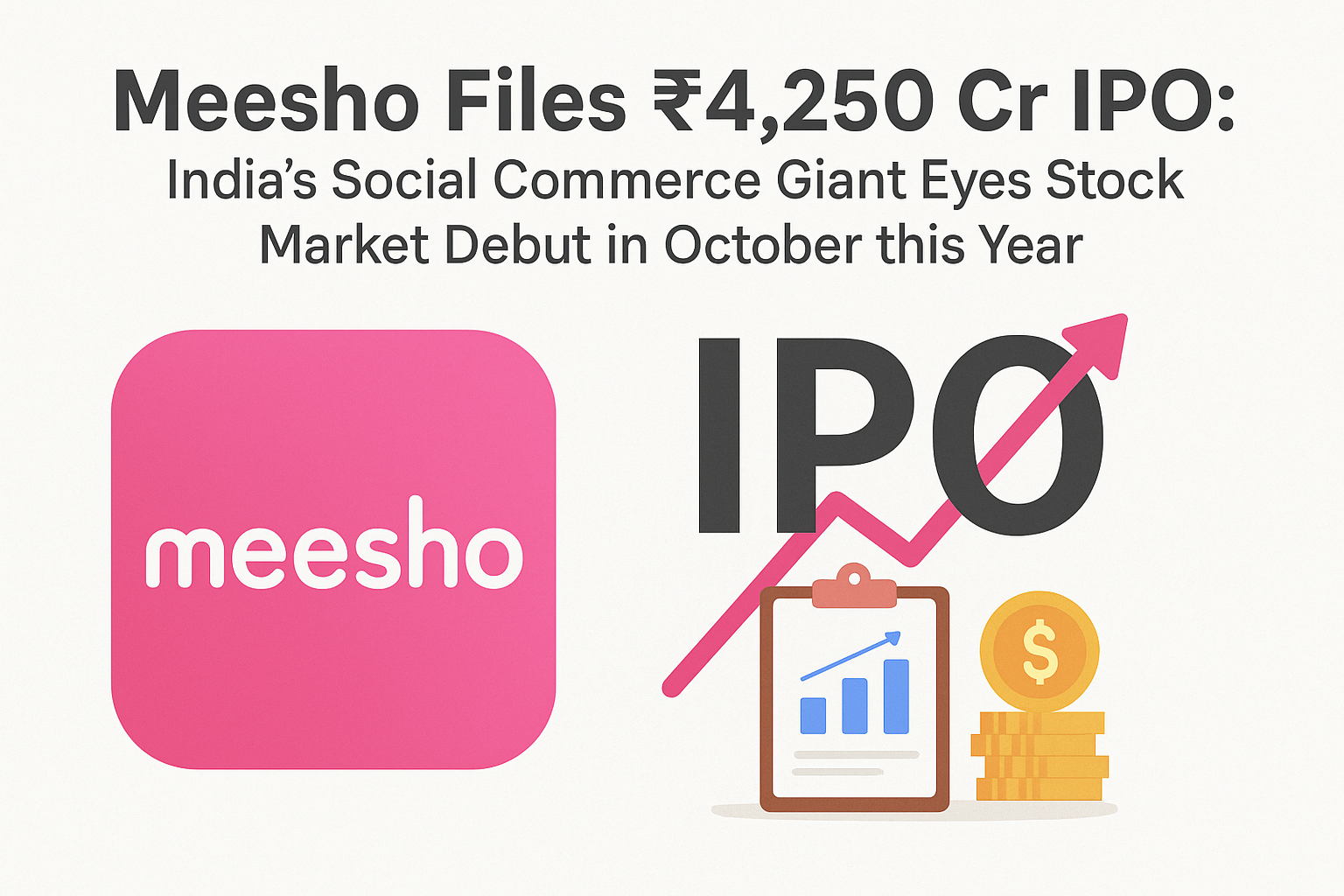Index Funds
Index Funds: The Simpler Way to Invest in India’s Stock Market
Introduction: What Are Index Funds?
When people look for safe and simple ways to invest in the stock market, they often come across the term Index Funds. But what exactly are they?
In simple words, Index Funds are a type of passive mutual fund that aims to mirror the performance of a particular stock market index. Instead of relying on a fund manager to actively pick and choose which stocks to buy and sell, index funds simply replicate an index like the Nifty 50, Sensex, or Nifty Next 50.
This means that if the index goes up by 10%, your index fund will also aim to deliver roughly the same return (minus a very small expense ratio). This simple approach has made index funds one of the fastest-growing investment choices in India, especially for new investors and those who believe in the idea of “low-cost, long-term investing.”
🔍 How Do Index Mutual Funds Work?
- The idea behind an index fund is beautifully straightforward. Let’s say you invest in a Nifty 50 index fund. This fund will buy the exact same 50 stocks that make up the Nifty 50 index, and in the same proportion. If Reliance Industries forms 10% of the index, then about 10% of your money is invested in Reliance too.
- This “buy and hold” strategy means that index funds do not churn their portfolio frequently like actively managed funds. They do not try to outperform the market — they just try to match it. Because of this, index funds have much lower expense ratios than actively managed equity mutual funds.
- So, when you see people searching how to invest in index funds, they’re basically looking for the easiest way to match the stock market’s performance with minimum cost and fuss.
Lorem ipsum dolor sit amet, consectetur adipiscing elit. Ut elit tellus, luctus nec ullamcorper mattis, pulvinar dapibus leo.
Business News
🗂️ Popular Types of Index Funds in India
One big reason why index mutual funds in India are gaining popularity is that there are now many options to choose from. Let’s look at some of the most common ones:
1. Nifty 50 Index Funds
These funds track the Nifty 50 index — India’s flagship stock market index, consisting of 50 of the largest and most liquid companies listed on the NSE.
2. Sensex Index Funds
Sensex index funds replicate the Sensex, which comprises 30 of the biggest and most established companies listed on the BSE.
3. Nifty Next 50 Index Funds
These funds invest in the next 50 largest companies just below the Nifty 50. They’re slightly more volatile but offer the potential for higher returns as these companies have more growth room.
4. Sectoral and Thematic Index Funds
Some funds track sector-specific indices like Nifty Bank, Nifty IT, or Nifty Pharma. These are more focused bets and can be riskier.
5. International Index Funds
Many AMCs now offer index funds that track global indices like the S&P 500 or NASDAQ 100. These let you diversify internationally without opening foreign accounts.
Advantages of Index Funds
There’s a reason why investors, especially beginners, increasingly search for best index funds in India. Let’s break down why index funds are such a good fit for many people:
1. Low Costs
Because there’s no active stock picking involved, index funds have a very low expense ratio, usually between 0.1% and 0.5% in India. This means more of your money stays invested and compounds over time.
2. Simplicity and Transparency
You always know exactly where your money is invested — the same stocks as the index, in the same proportion.
3. No Fund Manager Bias
Human emotions and judgment errors can hurt performance in actively managed funds. Index funds remove this by sticking to the index composition.
4. Historically Competitive Returns
Over long periods, many actively managed large-cap funds struggle to beat their benchmarks consistently. Index funds ensure you at least match the index’s returns.
5. Diversification
When you invest in an index fund like the Nifty 50, you get exposure to 50 top companies across sectors like IT, banking, FMCG, and energy, reducing the impact of any one company’s poor performance.
Risks and Limitations of Index Funds
Of course, no investment is risk-free. When you search should I invest in index funds, remember:
- Index funds will never beat the market. They’re designed only to match it.
- In volatile markets, you may see your investment value fall in the short term.
- Tracking error can slightly affect returns, although this is usually very small for well-managed index funds.
- There’s no downside protection. Actively managed funds might shift out of falling stocks, but index funds will hold them as long as they remain in the index.
- Index funds will never beat the market. They’re designed only to match it.
How Have Index Funds Performed Historically?
- Globally, index investing has been hugely successful. In India too, the last decade has shown that index funds, especially large-cap ones, have often performed better than many actively managed funds after costs.
- For example, the Nifty 50 has delivered a CAGR of around 12%–15% over the long term. Of course, past performance is no guarantee, but index funds are designed to capture India’s economic growth story.
💬 Who Should Invest in Index Funds?
Index funds are best suited for:
- First-time investors who want stock market exposure with low cost and minimal decision-making.
- Long-term investors with a horizon of at least 5–10 years.
- Passive investors who believe that markets are mostly efficient over time.
- Goal-based investors who want a core portfolio for wealth creation.
- First-time investors who want stock market exposure with low cost and minimal decision-making.
Huge user growth in Q2 2025
How to Invest in Index Funds in India
Investing in index funds is super easy:
1. Choose Your Index: Decide which index you want to track — Nifty 50, Sensex, Nifty Next 50, or an international index.
2. Compare Expense Ratios: Lower is better since your goal is to match the index, not pay extra for active management.
3. Check Tracking Error: A lower tracking error means the fund closely matches the index’s performance.
4. Lump Sum or SIP: You can invest all at once or through a SIP to benefit from rupee cost averaging.
5. Stay Invested: Index investing works best when you hold for the long term without trying to time the market.
Taxation of Index Funds
Since index funds are equity mutual funds, their taxation follows the same rules:
- If you hold your investment for more than a year, long-term capital gains (LTCG) above ₹1 lakh are taxed at 10%.
- If you redeem within a year, short-term capital gains (STCG) are taxed at 15%.
- If you hold your investment for more than a year, long-term capital gains (LTCG) above ₹1 lakh are taxed at 10%.
✨ Final Thoughts: Are Index Funds Right for You?
- In a world of complex investing choices, index funds stand out for their simplicity, low costs, and reliability. If you believe that India’s economy will continue to grow and you’re okay with matching, rather than beating, the market, index funds are a smart choice for your core portfolio.
- They’re a perfect fit for investors who want to build wealth steadily over time, avoid high fees, and not worry about market timing or fund manager performance.
- All Posts
- Become Partner
- Broker Review
- Crypto
- IPO
- Mutual Fund
- Recent News
- Recent Updates
- Stock Market

Income Tax Return Due Date AY 2025-26: Latest Updates You Must Know The income tax return due date is one...

Urban Company IPO GMP Rises Urban Company IPO GMP The Urban Company IPO GMP has surged ahead of its public...

Urban Company IPO 2025 – A Profitable Startup Going Public Urban Company IPO 2025 The Urban Company IPO 2025 has...

IPO Raised ₹599 Crore Even Before Opening, Investors Rush In; GMP Will Blow Your Mind The Indian stock market is...

Meesho Files ₹4,250 Cr IPO: India’s Social Commerce Giant Eyes Stock Market Debut in October this Year Bengaluru-based ecommerce platform...

NSE’s Diwali IPO in Sight: Awaits SEBI’s NoC After ₹1,600 Cr Record Settlement Proposal From SEBI’s Final Clearance to Damani’s...
By Popular Top Share Brokers

Motilal Oswal
30 days brokerage free trading
Free – Personal Trading Advisor

AngelOne
Free Equity Delivery
Flat ₹20 Per Trade in F&O

Profit mart
Free Equity Delivery
Flat ₹20 Per Trade in F&O

ProStocks
Unlimited @ ₹899/month
Rs 0 Demat AMC

Upstox
FREE Account Opening
Flat ₹20 Per Trade

Paytm Money

Pay ₹0 brokerage for first 10 days
Flat ₹20 Per Trade

Fyers
Free Eq Delivery Trades
Flat ₹20 Per Trade in F&O




